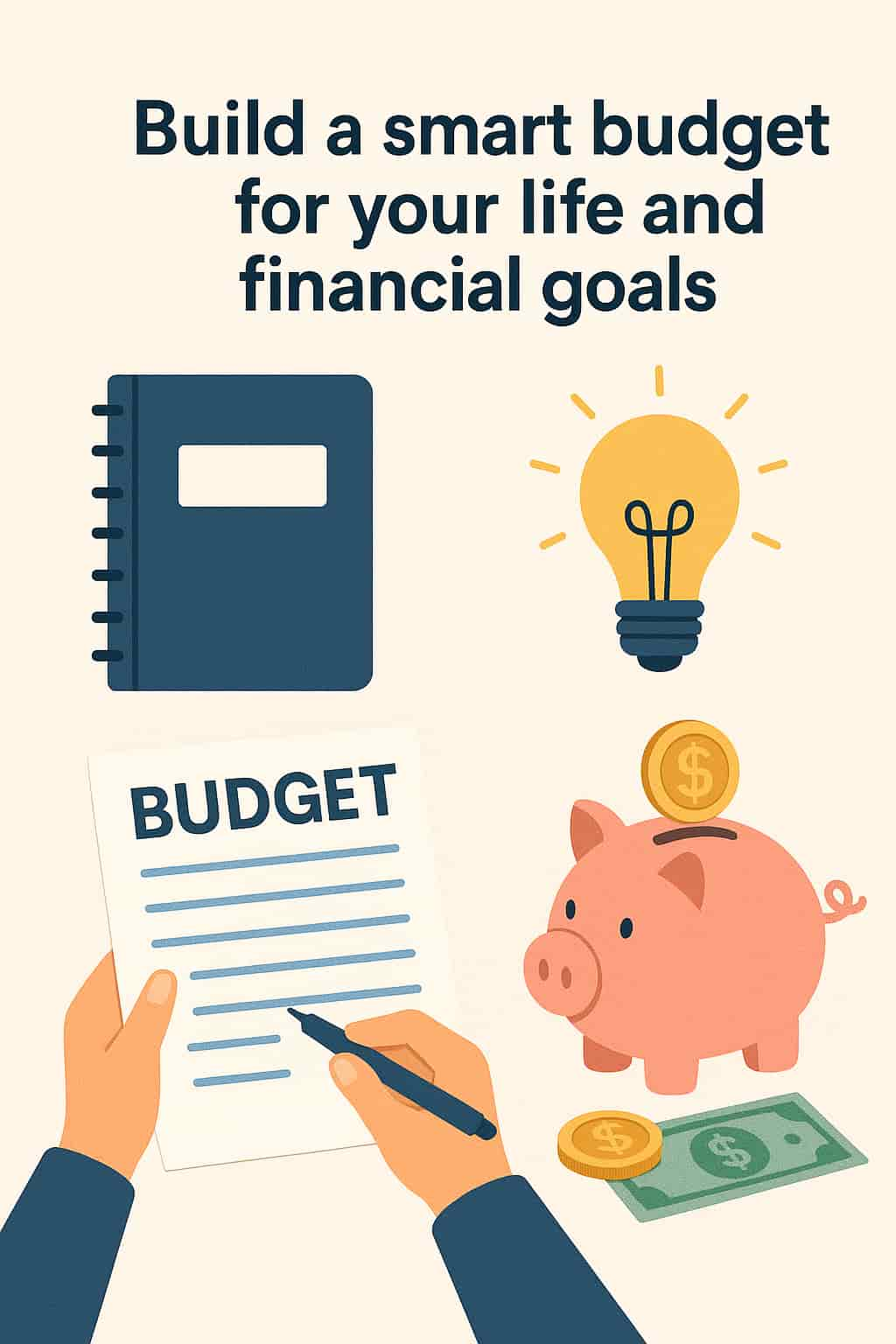Build a Smart Budget for Your Lifestyle & Financial Goals .
Create an Effective Personal Budget for save More, Spend Smarter and Achieve Financial Stability.
Neha Singh
3 min read
17 Jun 2025
💰Understanding the basic of budgeting :-
budgeting is not just a financial strategy-it is roadmap for long term stability and growth .Whether you're managing personal finances, running a business, or overseeing departmental expenditures, a well-structured budget offers clarity, control, and confidence in your financial decisions.
Budgeting allows individuals and organizations to allocate resources efficiently, anticipate future financial needs, and avoid unnecessary debt.

🗒️The role of budgeting in personal financial planning -
Establishing a personal financial budget is a fundamental component of achieving long-term financial stability and well-being lifestyle. enables individuals to gain a comprehensive understanding of their income, expenditure patterns, and financial objectives. By implementing a structured budgeting plan, you can proactively manage your finances, make informed decisions, and maintain control over your financial resources—rather than allowing spending habits to dictate your financial outcomes.
Here are the key reasons why creating a personal budget is essential:
1. Gain Clarity and Control Over Your Finances-
A well-structured budget give a clear overview of your monthly income and expenses. It allows you to identify where your money is going and ensures you’re allocating resources intentionally.
This financial clarity helps prevent overspending and reduces the risk of relying on each paycheck to meet basic needs Reduce
2.Reduce Financial stress and uncertainty -
Having a financial rule in place significantly decreases anxiety around bills ,debt , and unexpected expenses.
A budget introduces structure and predictability into your financial routine, allowing you to approach money matters with more confidence and less stress.
3.classify Your Spending with Financial Goals-
Whether you're building an emergency fund, saving for a huge purchase, or working toward becoming debt-free, budgeting helps you stay aligned with your objectives. It potentially you to define measurable goals, set achievable timelines, and monitor your progress efficaciously.
4.curtail and Manage Debt Responsibly-
By compatibly tracking your spending, you’re better furnished to avoid unnecessary borrowing. A thoughtful budget also supports the development of a strategic debt repayment plan, helping you pay off outstanding balances in a sustainable and structured manner.
5. Build Resilience Through Savings-
Budgeting insures you're setting aside funds for future necessity—such as emergencies, retirement, or planned large expenditures. This financial plan protects you from relying on credit when the unexpected arises, reinforcing long-term stability.
6. Strengthen Financial Confidence and Autonomy-
A consistent budgeting practice empowers you to make informed financial decisions with greater certainty.
It contributes to peace of mind and enhances your ability to take pleasure life with the belief that your finances are well-managed and aligned with your goals.
A well structured budget allow this-
- Cover essential expenses without worriement
- Save for future necessity and emergencies
- Avoid unnecessary debt
- Work towards long-term financial goals
📝A Strategic Guide to Building a Personal Financial Budget:-

1.Evaluate your net income -
Begin by determining your monthly net income—your total earnings after taxes, insurance contributions, and other deductions. If you have multiple income sources (salary, freelance work, dividends, etc.), ensure all are consider for. Use your net income as the baseline for all financial plan.
2.Categorize your all Expenses -
Maintain a detailed record of all monthly expenses. Divide them into two categories
- Fixed Expenses: Rent or mortgage, insurance premiums, loan payments, utility bills
- Variable Expenses: Groceries, transportation, entertainment, dining, discretionary purchases.
3.Establish Clear Financial Goals-
set short, medium, and long-term financial goal. Examples include:
- Short-term: Build an emergency fund, reduce discretionary spending.
- Medium-term: Pay off credit card debt, save for a car or home down payment.
- Long-term: Retirement savings, investment portfolio growth, children’s education funds.
4.Determine Budget Categories and Funds-
Develop specific budget categories that reflect your lifestyle and financial goals. Use the 50/30/20 rule as a draft:
- 50% Needs: necessary such as housing, food, transportation, insurance.
- 30% Wants: Unnecessary like entertainment, travel, and luxury items.
- 20% Savings & Debt Retract : Emergency fund contributions, investments, debt reduction.
5.Apply and Monitor the Budget -
Apply your budget plan consistently, and observe it on a weekly or monthly basis. Monitoring allows you to:
- Identify overspending .
- Adjust categories as requirement.
- Evaluate progress toward financial goals.
6.Estimate and adjust Constantly -
Economic stages, career shifts, and lifestyle changes can impact your financial situation. Reassess your budget every 3 to 6 months to ensure it remains aligned with your income, expenses, and priorities.
Short key to create a smart Budget -
- Determine your net income .
- Track and Categories all Expenses.
- Establish defined Financial Objectives.
- Strategically allocate funds.
- Implement and Monitor your Budget.
- Review and refine periodically.
Conclusion -
Creating a budget is a critical step toward achieving financial stability and long-term success. By clearly identifying your income sources, tracking expenses, and setting realistic financial goals, you can build a spending plan that aligns with your priorities.
Consistency is key. Reviewing and adjusting your budget regularly ensures it remains relevant as your circumstances change. Whether you're working toward paying off debt, building an emergency fund, or saving for a major investment, a thoughtfully prepared budget serves as your financial blueprint.



.jpg&w=256&q=75)
.jpg&w=256&q=75)